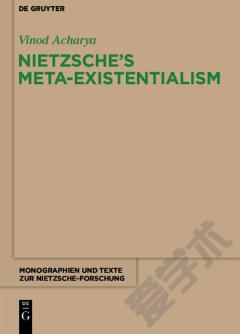Nietzsche's Metaphysics of the Will to Power: The Possibility of Value
Nietzsche's controversial will to power thesis is convincingly rehabilitated in this compelling book. Tsarina Doyle presents a fresh interpretation of his account of nature and value, which sees him defy the dominant conception of nature in the Enlightenment and overturn Hume's distinction between facts and values. Doyle argues that Nietzsche challenges Hume indirectly through critical engagement with Kant's idealism, and that in so doing and despite some wrong turns, he establishes the possibility of objective value in response to nihilism and the causal efficacy of consciousness as a necessary condition of human autonomy. Her book will be important for scholars of Nietzsche's metaphysics, and of the history of philosophy and science more generally.
{{comment.content}}








 京公网安备 11010802027623号
京公网安备 11010802027623号